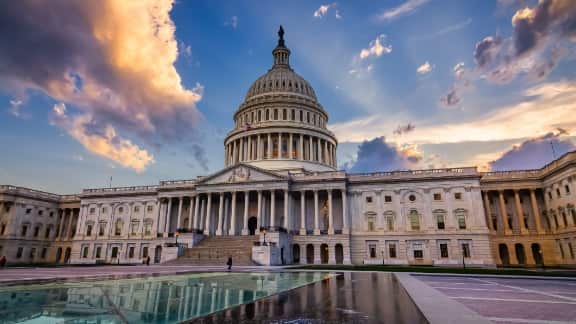
Disruptor SeriesTM
A quarterly insight and event series providing distinct perspectives on critical issues facing the capital markets
Featured Topic
The Mind in the Machine, Part Two: From Titans to Trailblazers—Winners, Losers and the Road Ahead for AI
Presented by Rick Brink, CFA, Matthew Parron, Pradeep Ramani, and James Russo
Artificial intelligence has moved from “cool app” to enterprise essential—and it’s just getting started.
As we continue our AB Disruptor Series, our deep dive into artificial intelligence, we shift our lens from the contributors to AI’s industrial backbone toward the companies shaping—and being shaped by—the AI era.
Hyperscalers, semiconductor leaders, software platforms, even under-the-radar firms: they’re all traveling the same road from today’s infrastructure buildout to tomorrow’s pervasive adoption and ultimately the physical age of AI. Investors, meanwhile, find themselves busily charting pathways around risk and toward opportunity.
What We Discussed
-
The race among hyperscalers—the powerplants of AI
-
The critical roles of semiconductor platers who enable AI
-
Small- and mid-cap companies that may fly under the radar of the AI boom
-
How the map of AI's road ahead may evolve with transformative technology
Presented By
Sign Up
Receive updates on our quarterly Disruptor Series events
Thank You
Thanks for your subscription to AB's Disruptors Series! Look forward to distinct perspectives on the critical issues facing the capital markets every quarter straight to your inbox.
More for You
Decoding AI Winners and Losers in Software
The Future of AI: A Rising Tide for All
Scaling Up: The Growing Demand for Networking Solutions
Suggest a future topic
Past Topics
The information on this website is general communication and is educational in nature. It is for informational purposes only and is not designed to be a recommendation of any specific investment product, strategy or plan design or for any other purpose. Unless specified, examples used in the materials or online tools are completely hypothetical. By providing this information, neither AllianceBernstein nor its employees have the responsibility or authority to provide or have provided investment advice in a fiduciary capacity. Commentaries and opinions provided should not be construed as suggestions for taking or refraining from any course of action and should not be viewed as investment recommendations; they are provided as part of the general marketing and advertising activities of AllianceBernstein. Please contact your financial professional for investment advice tailored to your specific needs.











